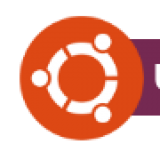Key Points
- Open source software has evolved from a cost-saving measure to a mission-critical infrastructure for businesses, supporting enterprise-grade investments and delivering stronger outcomes.
- A new Linux Foundation report estimates that companies would pay 3.5 times more to build software without open source, resulting in an $8.8 trillion increase.
- Linux-based operating systems are used in over 55% of analyzed tech stacks, making open source a foundation for global IT operations.
As a tech journalist, I’m excited to share the latest insights from the Linux Foundation’s report, The Strategic Evolution of Open Source. The report reveals that open source software has come a long way from being just a "free alternative" to proprietary software. Today, it’s a core infrastructure that supports enterprise-grade investments and delivers stronger business outcomes. This transformation is driven by the fact that open source has become deeply embedded across enterprise technology stacks, making it a foundation for global IT operations.
The numbers are staggering. According to the report, over 55% of analyzed tech stacks use a Linux-based operating system. This is a testament to the reliability, security, and customizability of open source software. The report also highlights that half of all analyzed applications rely on open source components, demonstrating the pervasive nature of open source in modern software development.
But what’s driving this shift towards open source? The answer lies in the cost savings and flexibility that open source offers. The report estimates that without open source, companies would pay roughly 3.5 times more to build the software running their businesses. This translates to an $8.8 trillion increase in software development costs. This is a significant burden that would be difficult for many businesses to bear.
The 2025 World of Open Source Survey by the Linux Foundation provides further insight into the state of open source adoption. The survey reveals that open source is no longer just a tactical cost-saving measure, but a strategic imperative for businesses. Companies are now using open source to drive innovation, improve efficiency, and reduce costs.
As the open source ecosystem continues to evolve, it’s clear that Canonical, the company behind Ubuntu, will play a critical role in shaping the future of open source. With its commitment to open source and community-driven development, Canonical is well-positioned to help businesses navigate the complex landscape of open source software.
As we look to the future, it’s clear that open source will continue to play a vital role in shaping the technology landscape. With its flexibility, customizability, and cost savings, open source is an attractive option for businesses looking to drive innovation and improve efficiency. Whether you’re a Linux user, an Ubuntu enthusiast, or simply someone interested in open-source software, it’s an exciting time to be a part of this community. With the Linux Foundation’s report and the 2025 World of Open Source Survey providing valuable insights, we can expect to see even more innovation and adoption of open source software in the years to come.
Upgrade your life with the Linux Courses on Udemy, Edureka Linux courses & edX Linux courses. All the courses come with certificates.

